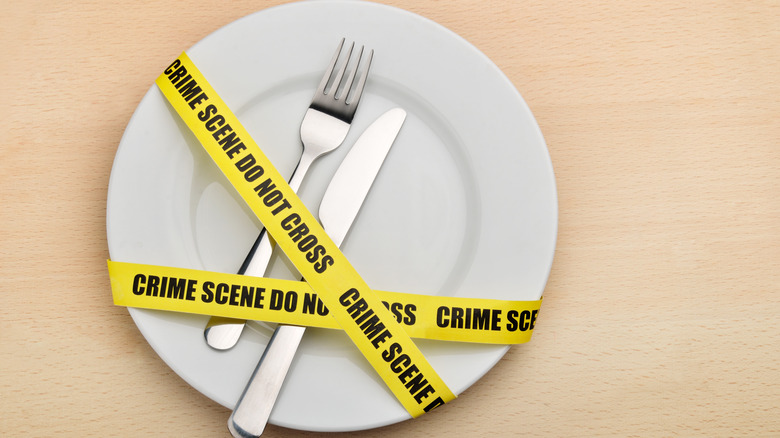Why Foodies Should Watch Netflix's Documentary Rotten
"Rotten" is a documentary series streaming on Netflix. (View the trailer on YouTube.) The series debuted at the beginning of 2018. Its two seasons consist of six episodes each, with each episode running about an hour in length. Produced by Zero Point Zero Productions, the company that created Anthony Bourdain's series "Parts Unknown," the series does not follow the wonders of composting, fermentation, and food waste, but the sometimes shady business practices behind common foods.
Eater recommends that if you only watch one episode, it should be the installment in which two chicken farmers in South Carolina search for whoever tampered with the electrical units, killing thousands of chickens. A runner-up episode details how two New Mexican farmers got involved with a Chinese garlic company and the prisoners who peel garlic. The rest of the series similarly applies the sensibilities of the true crime genre to corruption within the food industry. In fact, Eater credits the show as the best televised depiction of food corruption. It makes what can otherwise read as dry policy reports feel fresh and vital.
The show might suffer because it entertains
If you have decided to give the show a try, you should be aware that in its attempt to bring a true crime aesthetic to food, the show becomes infotainment. In other words, it intends to instill strong feelings within you more than it necessarily intends to inform.
In their review of "Rotten," Science Meets Food notes that the businesses are always compared to an easy criminal analogue: "For example, the narrator compares dilution of honey to a ploy that 'is straight out of the drug dealers' playbook!' Honey. Drug Dealing. Logical conclusion there..." While one might get the point they're trying to make — that drug dealers can sometimes dilute their product to sell more — the comparison casts the honey business as being akin to that of dealing drugs, which is perhaps a stretch. Other episodes take on such subjects as chocolate, chicken, food allergies, and bottled water.
That is not to say the show is bad. Science Meets Foods appears to have enjoyed it, and it seems certain that many foodies will as well. So, watch the show, but if you grow interested, be sure to read more about the subjects afterwards.

